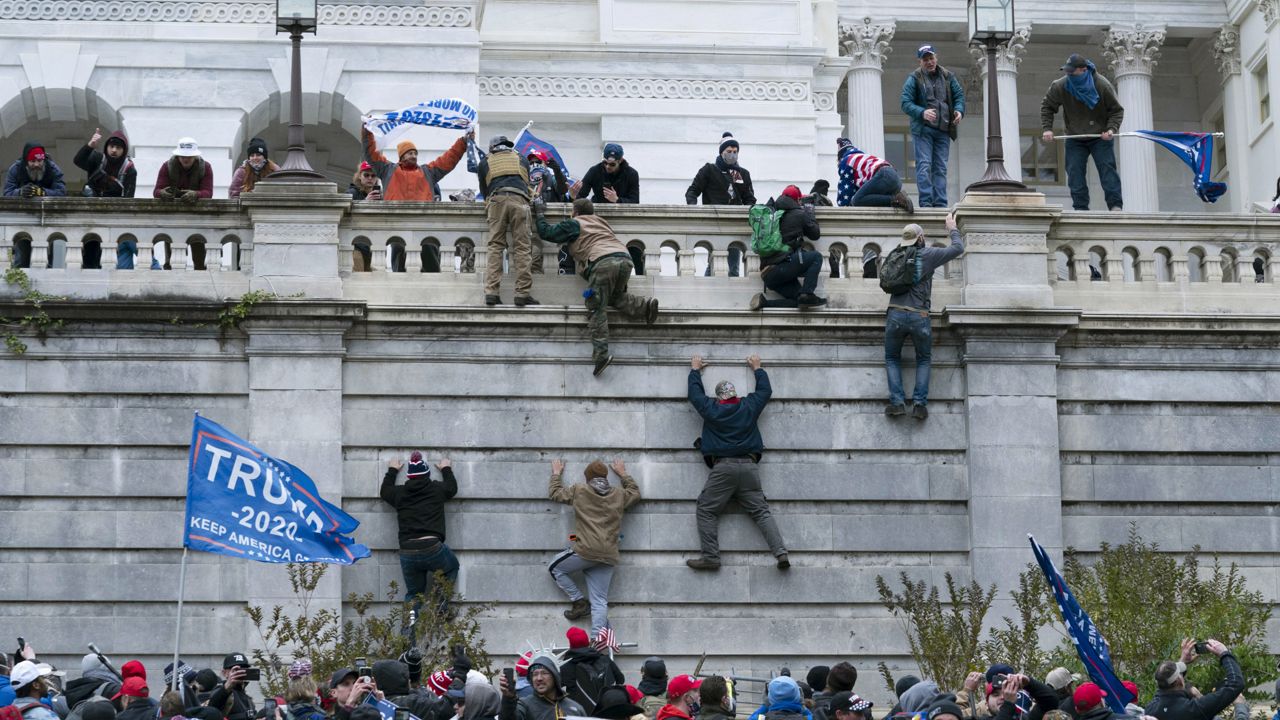IRVINE, Calif. — California State University, Long Beach Professor Jason Whitehead was teaching an introduction to American Government class on Zoom when he looked down on his phone and saw live videos of rioters storming into the U.S. Capitol building.
"I just froze," said Whitehead, who was keeping track of the certification of electoral votes on his phone. "My blood ran cold. I immediately stopped the mid-term review session and told everyone what was happening. They were just as stunned and glassy-eyed as I was.
"Here I am talking about the founding, the constitution, and the details of the American government... The irony of teaching about the foundation of the American government when the American government is under assault," he said.
Whitehead and other political science professors across Southern California were just as baffled, confused, and stunned by the events that unfolded in Washington D.C., and now question if American democracy is facing a crisis.
On Wednesday, the House of Representatives and Senate met to officially certify the electoral votes for President-elect Joe Biden and Vice President-elect Kamala Harris. But thousands of pro-President Donald Trump supporters staged a rally in the nation's capital protesting the certification, eventually clashed with police, broke down barriers, and stormed into the Capitol building.
According to reports, one person was shot and killed.
Not since the War of 1812 when British troops burned down the White House and U.S. Capitol Building, along with other buildings, has a group successfully invaded a government building, USC Louis Warschaw Chair in Practical Politics Robert Shrum said.
"This is shameful. This is unprecedented. It's the most humiliating day in American history when you realize the whole world is watching," Shrum said. "This was sedition promoted by a U.S. president."
"This was a coup attempt," UC Irvine Political Science Professor Cecelia Lynch said.
For academics and scholars, the latest event shows how far U.S. democracy has gone down in the past few years, Lynch said.
America was once the beacon on the hill, the guiding light for how democracies should work around the world.
"What has become evident over the last four years is that U.S. democracy is not the beacon on the hill and not the model for everyone else to emulate," she said. "This put the nail on the coffin on that idea."
UC Irvine Sociology Professor David Meyer said the whole idea of democratic politics is that you have to be willing to lose and still be invested in the game.
"This is the president of the United States saying there are objectives that are more important than maintaining the system," Meyer said. "Our democracy is facing massive challenges."
Experts say that the faith in the U.S. democracy is eroding. President Trump's continually undermining the election results and maintaining "it was stolen" hurts a democratic government's foundation.
"Democracy can't function if every time you lose, you say, 'It was stolen from me,' or if you think your opponents are mortal enemies, and if you play the game and lose, you burn down the stable," Shrum said. "That will destroy the democracy.
"One of the biggest challenges President Biden faces is restoring some sort of shared citizenship and fealty and loyalty to the constitution and the democratic process," he said.



